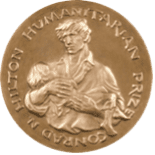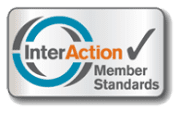WASHINGTON, June 28, 2023 — Older women in the U.S. are interested in receiving financial education, but there are few programs tailored to their needs, according to the latest report from HelpAge USA and the University of Southern California (USC) Dornsife Center for Economic and Social Research. While financial literacy improves well-being and is especially important for older women due to life-long inequalities, the report reveals a persistent gender gap and a lack of financial education programs to support them.
According to a nationally representative survey of 3,646 U.S. women and men between the ages of 40–65, average financial literacy scores for men were 25% higher than for women even though cognitive scores were not statistically different by gender, and this gap persisted even after controlling for education and employment status. Furthermore, a representative follow-up survey of 438 U.S. women aged 40–65 found that while more than 70% expressed interest in receiving financial education—with demand among traditionally underrepresented groups being especially high—only 16% had ever received it, and most not within the last two years. Despite these findings, a landmark meta-analysis by Kaiser et al. (2022) showed that of 76 financial programs reviewed, few focused on the population aged 50+ and only one on older women.
The report highlights research on the implementation of a successful financial literacy program across Asia called the Citi-Tsao Foundation Financial Education Programme for Mature Women and the need and opportunity for financial education for older women in the U.S. Using the lessons from international experience, the research involved in-depth interviews with 30 U.S. stakeholders from a range of sectors, analyzing existing survey data on gender differences in financial literacy, and fielding a new nationally representative survey on the demand for financial education among U.S. women aged 40–65.
“There is a common myth that older people, and especially older women, are not interested in financial education or that this demographic lacks financial value,” said Cindy Cox-Roman, president and CEO of HelpAge USA. “However, our research and international experience shows that this is not the case. Significantly, a follow-up evaluation of the Citi-Tsao program found that the women aged 40–60 who participated in the program reported feeling more control and reduced stress related to financial decision-making 10 years later. Building women’s financial health at older ages is critical to our mission of advancing the dignity and well-being of older people and cannot be overlooked.”
In addition to new nationally representative survey data and findings from the Citi-Tsao program, the report features interviews with stakeholders from the aging, academic, financial services, gender equity, government, and research sectors. They described a limited landscape of financial education resources for older women in the U.S, using words like “scattershot,” “spotty,” and “severely lacking.”
The report also offers concrete findings that nonprofits, financial institutions, policymakers, and practitioners can use to design programs that will make a difference for older women of all backgrounds and income levels.
“Our research reveals that women prioritize age-specific programming with a focus on long-term planning, as well as trust and convenience,” said Joanne Yoong, USC research fellow and founder of Research For Impact Singapore. “According to our findings, there is a lack of programs specifically designed to address the needs of older women and that are implemented at scale, by a trusted organization, and in a way that’s accessible to all. Therefore, there is a significant opportunity to empower older women with the financial literacy skills they want and need.“
To read the full report and watch a webinar sharing the key findings, visit helpageusa.org/financial-literacy-older-women/.
About HelpAge USA
HelpAge USA is a nonprofit that advances the rights, well-being, and inclusion of older people around the world. As part of the HelpAge Global Network, HelpAge USA works to ensure that the contributions of all older people are recognized, and they have the right to a healthy, safe, and secure life. Visit us at helpageusa.org.
About the USC Dornsife Center for Social and Economic Research
The Center for Economic and Social Research (CESR) is a center within the USC Dana and David Dornsife School of Letters, Arts and Sciences focused on economic and health disparities, social inequality, and the needs of children, families, and older Americans. Our research explores the impact of social services and public policy, shifting population trends and their implications, and how human behavior affects our well-being now and as we age. Learn more at cesr.usc.edu.
About Research For Impact Singapore
Research For Impact (RFI) is a Singapore-based think-tank dedicated to making the behavioral and social sciences accessible, inclusive, and transformative for all. Our multidisciplinary team offers research, monitoring and evaluation, advisory, and capacity-building services to organizations with social purpose goals across diverse sectors, including health, education, social protection, finance, and community development. We combine global experience and technical expertise with a creative, collaborative approach that enables our partners to empower themselves through evidence-driven decision-making for policy-making, practice, and advocacy. Learn more at rforimpact.com.
Contact:
Alex Garvey,
Communications Manager
agarvey@helpageusa.org
205-914-4580


